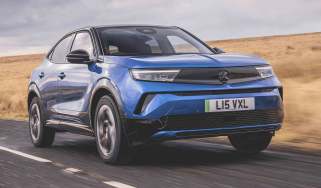Vauxhall
New Vauxhall Corsa Electric Long Range can manage 266 miles on a charge

New Vauxhall Corsa Electric Long Range can manage 266 miles on a charge
Fresh edition has the same-sized battery than the car it replaces, but Vauxhall has eked out more range
Vauxhall Mokka Griffin returns to line-up with £24,995 starting price 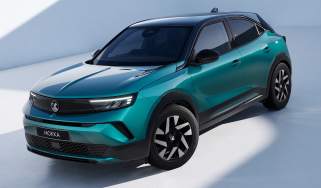

Vauxhall Mokka Griffin returns to line-up with £24,995 starting price
Vauxhall’s new Mokka Griffin special edition adds more kit and a slight price hike for 2025
Entry-level Vauxhall Corsa Yes Edition adds hybrid option and more powerful electric powertrain

Entry-level Vauxhall Corsa Yes Edition adds hybrid option and more powerful electric powertrain
The big-battery Vauxhall Corsa Electric now gets a sub-£29k price tag courtesy of the Yes Edition
Vauxhall cuts EV prices in response to VED changes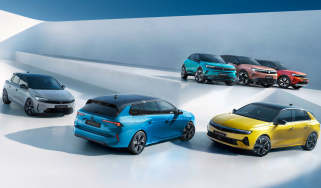

Vauxhall cuts EV prices in response to VED changes
Every electric Vauxhall now comes in under the £40,000 threshold for ‘luxury’ car tax, potentially saving customers over £2,000
Tears at Vauxhall Luton as final van rolls off the line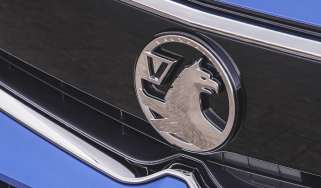

Tears at Vauxhall Luton as final van rolls off the line
120 years of vehicle manufacturing comes to an end, as Stellantis turns its back on historic British plant
Car Deal of the Day: a top-spec Vauxhall Corsa for a tempting £148 a month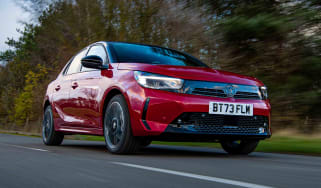

Car Deal of the Day: a top-spec Vauxhall Corsa for a tempting £148 a month
The Vauxhall Corsa is a British institution – and a cheap one at that. It’s our Deal of the Day for 20 March
Ford Focus alternatives: ten cars to consider instead of the family hatch icon 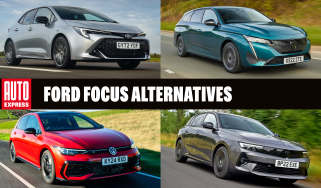

Ford Focus alternatives: ten cars to consider instead of the family hatch icon
As the Ford Focus prepares to bow out, we suggest some other great cars worthy of your attention
Best used hybrid cars to buy now 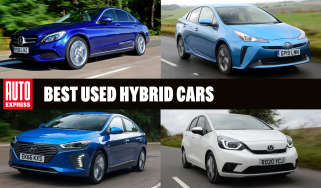

Best used hybrid cars to buy now
Want to embrace electrified driving but need the reassurance of an internal combustion engine? Try one of our favourite used hybrid cars
Best used electric cars to buy now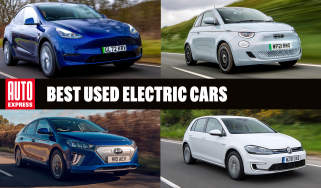

Best used electric cars to buy now
Looking to join the electric car revolution but have a smaller budget? Here are the best used electric cars to buy
Best cars for £3,000 or less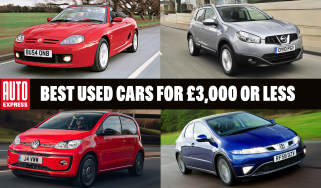

Best cars for £3,000 or less
A tight budget doesn’t mean you have to compromise on quality. Here are some great used cars available for £3,000 or less
Best cars for £20,000 or less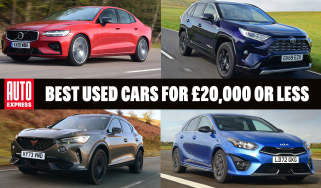

Best cars for £20,000 or less
£20k is serious used car money, these are our favourite buys for that kind of budget
Car Deal of the Day: top-of the range Vauxhall Grandland Ultimate for a mere £165 a month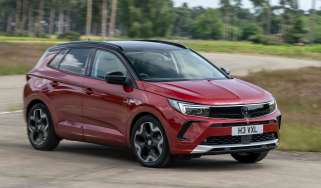

Car Deal of the Day: top-of the range Vauxhall Grandland Ultimate for a mere £165 a month
The Vauxhall Grandland shows you can have family SUV practicality for supermini prices - it’s our Deal of the Day for 8 March
Used Vauxhall Astra (Mk8, 2022-date) buyer’s guide: popular hatch is more tempting than ever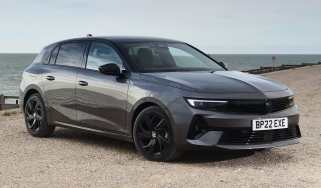

Used Vauxhall Astra (Mk8, 2022-date) buyer’s guide: popular hatch is more tempting than ever
A full used buyer’s guide on the Vauxhall Astra, covering the Astra Mk8 that’s been on sale since 2022
On-street charging shortage blamed for UK’s slow adoption of electric vans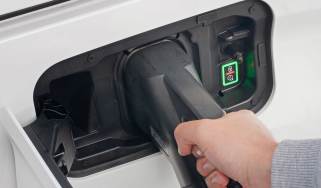

On-street charging shortage blamed for UK’s slow adoption of electric vans
90 per cent of van operators say drivers need residential charging before they will make the EV transition
Best-selling cars 2025: the year's 10 most popular models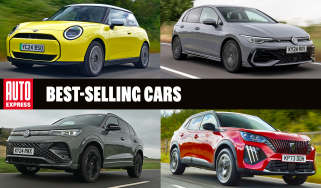

Best-selling cars 2025: the year's 10 most popular models
These are officially Britain’s biggest-selling new cars so far this year
Car Deal of the Day: go electric for just £165 a month with the Vauxhall Mokka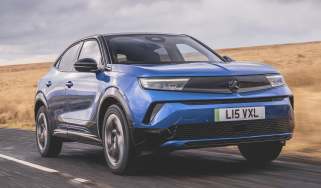

Car Deal of the Day: go electric for just £165 a month with the Vauxhall Mokka
You can switch to electric without busting your wallet with this Vauxhall Mokka. It’s our Deal of the Day for 3 March.
Best car leasing deals: 10 top offers hand-picked for you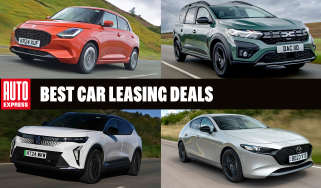

Best car leasing deals: 10 top offers hand-picked for you
Car leasing can get you behind the wheel of a new car for less. Our experts have picked the best around this week.
Skoda Superb vs Volkswagen Passat vs Vauxhall Insignia: which is the ultimate used family car? 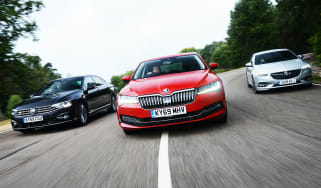

Skoda Superb vs Volkswagen Passat vs Vauxhall Insignia: which is the ultimate used family car?
Saloons and fastbacks still have plenty to offer buyers of family cars, so we put three of the best used models to the test
Best used estate cars to buy now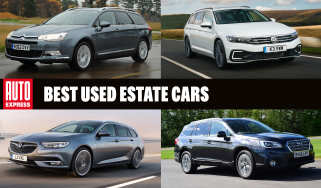

Best used estate cars to buy now
Our list of the best used estate cars will help you find a super-practical car that's also affordable
Used Car Hunter: small, thrilling hot hatchbacks for £8,000

Used Car Hunter: small, thrilling hot hatchbacks for £8,000
Our Car hunter has £8,000 to find a small car that offers massive levels of fun
Car Deal of the Day: The Vauxhall Grandland offers families EV motoring for just £215 a month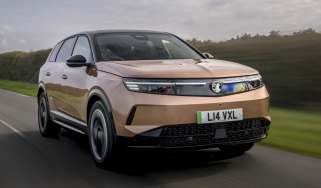

Car Deal of the Day: The Vauxhall Grandland offers families EV motoring for just £215 a month
There’s much to like with the new Vauxhall Grandland Electric – and its low price makes it even more appealing. It’s our Deal of the Day for 25 Februa…
Top 10 best hatchbacks to buy 2025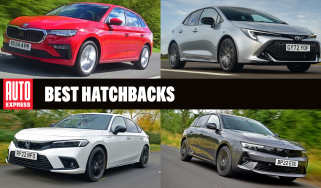

Top 10 best hatchbacks to buy 2025
We’ve selected our top 10 best family hatchbacks so you don’t have to
Best medium panel vans 2025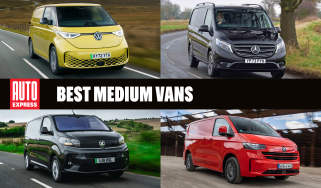

Best medium panel vans 2025
There's plenty of choice available in the hard-fought medium-sized van sector. We rank our favourites
Best new cars coming soon: all the big new car launches due in 2025, 2026 and beyond

Best new cars coming soon: all the big new car launches due in 2025, 2026 and beyond
These are the most important new cars headed our way, from brands including Audi, BMW, Dacia, Ferrari, Ford, Skoda and more
Car Deal of the Day: Efficient Vauxhall Frontera Hybrid for only £226 per month

Car Deal of the Day: Efficient Vauxhall Frontera Hybrid for only £226 per month
Vauxhall’s small SUV is sensible and spacious, and particularly with this lease deal, not expensive to own…
Best 7-seat electric cars to buy 2025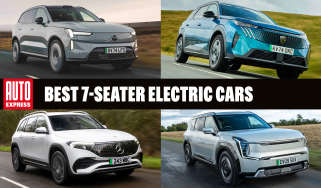

Best 7-seat electric cars to buy 2025
Looking for a large, electric car with seven seats? We’ve listed the best options currently available
Best new cars for under £300 per month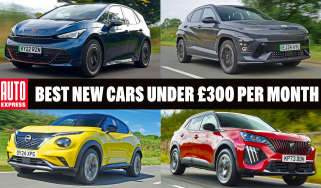

Best new cars for under £300 per month
You can get these top cars for less than £300 per month
Car Deal of the Day: fancy a £36k Vauxhall Astra Electric for just £181 a month?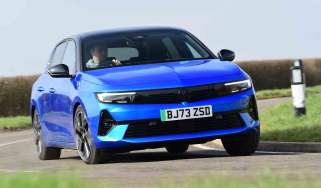

Car Deal of the Day: fancy a £36k Vauxhall Astra Electric for just £181 a month?
Vauxhall’s smart Astra Electric could be perfect for first-time EV buyers. It’s our Deal of the Day for 6 February
Best estate cars to buy 2025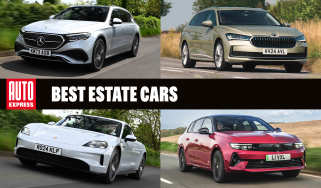

Best estate cars to buy 2025
A good estate car delivers practicality, space and low running costs - here are the 10 best estates on sale in the UK today
Car brands like Tesla and Vauxhall risk falling behind due to poor leadership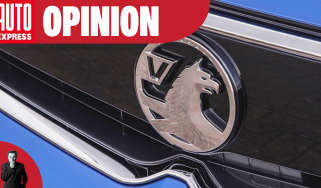

Car brands like Tesla and Vauxhall risk falling behind due to poor leadership
Mike Rutherford thinks manufacturers like Tesla and Vauxhall could be left behind due to poor management decisions
Used Vauxhall Grandland (Mk1, 2017-2024) review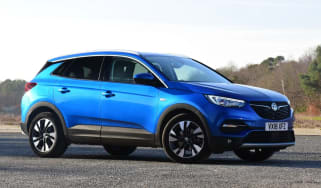

Used Vauxhall Grandland (Mk1, 2017-2024) review
A full used buyer’s guide on the Vauxhall Grandland covering the Grandland Mk1 that’s been on sale since 2017
Vauxhall Vivaro GS returns to give British-built van a sporty makeover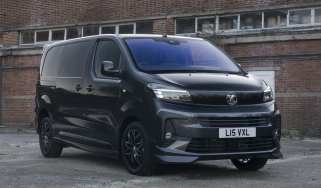

Vauxhall Vivaro GS returns to give British-built van a sporty makeover
GS trim is now available on the diesel and pure-electric versions of Vauxhall’s medium-size panel van
Car Deal Alert! New Vauxhall Frontera Electric available from £349 per month, with just £349 up front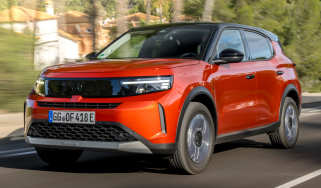

Car Deal Alert! New Vauxhall Frontera Electric available from £349 per month, with just £349 up front
British brand’s Electric All In package also gives customers money towards a home wallbox and 10,000 miles worth of free charging
Vauxhall Frontera orders open with EV and hybrid versions both starting at £23,495

Vauxhall Frontera orders open with EV and hybrid versions both starting at £23,495
Vauxhall’s family-focused budget SUV comes with latest Stellantis architecture
